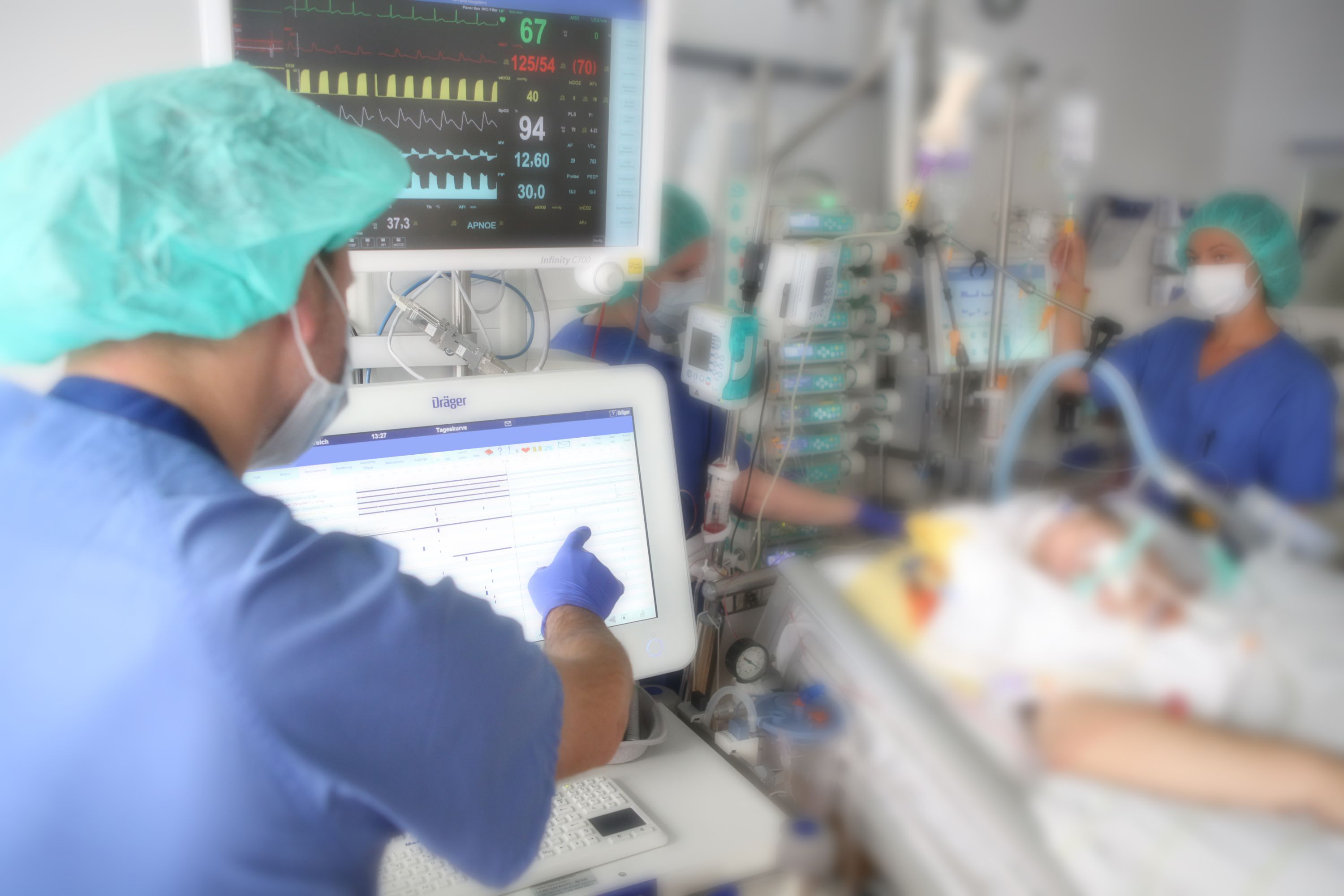The Global Sepsis Alliance and the World Sepsis Day Movement called for entries to the Global Sepsis Awards to honour initiatives that are committed to improving sepsis prevention and treatment on a regional, national and international level, by initiating quality improvement programmes. The Global Sepsis Award Jury, made up of internationally recognised experts for patient safety and sepsis management, awarded the Global Sepsis Award 2017 in category II (organisations/institutions) to the quality improvement initiative ‘Sepsisdialog’ (English: Sepsis Dialogue) at University Medicine Greifswald.The prize was awarded at the 8th Sepsis Congress of the German Sepsis Society (DSG) in Weimar (http://sepsis-2017.de/).
‘Greifswald’s team of doctors around Dr. Matthias Gründling has set new standards in the fighting of the widespread cause of death,’ stressed Prof. Konrad Reinhart from University Hospital Jena and Chairman of the Global Sepsis Alliance. ‘With the help of the hospital’s management, they were able to prove that there are effective instruments for successfully treating sepsis, if it is recognised fast enough. Greifswald’s quality initiative is a prime example and can be recognised as a role model not just for German hospitals, but also on an international level.’ Dr. Christian Scheer, researcher in Greifswald, successfully published the results of Greifswald’s ‘Sepsis Dialogue’ in the renowned American science journal Critical Care Medicine* and also received the Roger Bone Prize 2017 for an outstanding publication in the area of clinical sepsis research in German-speaking countries.
Ten Years of ‘Sepsis Dialogue’ Have Saved Hundreds of Lives
In its 10th year, ‘Sepsis Dialogue’ at University Medicine Greifswald, led by Dr. Matthias Gründling (photo) from the Clinic for Anaesthesiology and Intensive Medicine can look back at great achievements. The researchers from Greifswald belonging to ‘Sepsis Dialogue’, a quality assurance project to improve the prevention, diagnostics and treatment of sepsis at University Medicine Greifswald, have managed to reduce the 90-day fatality rate of severe cases (severe sepsis, septic shock) over the past years from 64.2 % to 45 % and therefore to save hundreds of patients’ lives. ‘Thanks to intensive training programmes on early recognition, the fast analysis of laboratory results using a PC programme and rapid first treatment of septic patients, the emergency management of sepsis was optimised step-by-step,’ said initiator, Dr. Matthias Gründling.
‘These results, which are unique to Germany, were only made possible by the joint commitment of nursing staff, doctors, hygienists and microbiologists over the course of several years,’ highlighted the director of the Clinic for Anaesthesiology, Prof. Klaus Hahnenkamp. In 2013 Germany’s hospitals registered 270000 cases of sepsis. Almost 80,000 patients did not survive.
The success factors in Greifswald included the systematic case analysis to recognise deficiencies in treatment processes, and the orientation and improvement of diagnosis and therapy on the basis of quality indicators that have been defined on a national and international level. Since 2008, Greifswald has had a ‘sepsis nurse’, who was trained specifically and financed by the hospital; and, as part of a training programme that is offered throughout the hospital, nurses and doctors are regularly trained on early recognition and the necessity of treating sepsis as an emergency.
What Is a Sepsis?
A sepsis can be caused by nearly any infection and often develops as a comorbidity to another illness or side effect of an operation. The symptoms are often misinterpreted and the sepsis is therefore recognised too late. Sepsis is the most aggressive form of an infection, caused by microorganisms such as bacteria, viruses or fungal infections and their toxins. Within just a few hours, all of the vital human organs show signs of dysfunction due to inflammatory responses that are out of control, and threaten to fail. Death basically comes out of nowhere. Early symptoms of a sepsis that are often misjudged in hospitals, especially in older patients, are high temperatures, increased breathing rate, faster heart rate, low brood pressure and decreasing frequency of urination, as well as confusion, which occurs very regularly.
Further Information
www.sepsisdialog.de [de]
https://wscspotlight.org/
www.sepsis-stiftung.eu [de]
www.world-sepsis-day.org
www.sepsis-gesellschaft.de/DSG/Englisch
www.icosmos.uniklinikum-jena.de/Willkommen.html [de]
*Critical Care Medicine: February 2017 - Volume 45 - Issue 2 - p 241–252
doi: 10.1097/CCM.0000000000002069
http://journals.lww.com/ccmjournal/Abstract/2017/02000/Quality_Improvement_Initiative_for_Severe_Sepsis.12.aspx
University Medicine Greifswald
Clinic for Anaesthesiology
Anaesthesiology, Intensive, Emergency and Pain Medicine
Director Prof. Dr. med. Klaus Hahnenkamp
Ferdinand-Sauerbruch-Straße, 17475 Greifswald
Tel.: +49 3834 86 5800
anaesthesiologie(at)uni-greifswald(dot)de
Quality Management Project ‘Sepsisdialog’
Project Manager: Dr. med. Matthias Gründling
Tel.: +49 3834 86 5862
Mobile: +49 173 2035446
sepsis(at)uni-greifswald(dot)de
www.medizin.uni-greifswald.de [de]
www.facebook.com/UnimedizinGreifswald
Twitter @UMGreifswald


